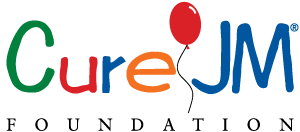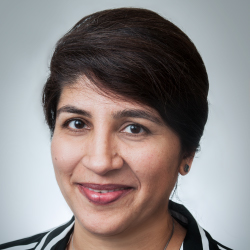Juvenile Myositis Program
Contact the Juvenile Myositis Program
What is the Juvenile Myositis Program?
Seattle Children's Juvenile Myositis Program gives expert care to children with very rare autoimmune conditions that cause muscle weakness and often skin rashes. We also research the causes of juvenile myositis and how to improve treatment.
In juvenile myositis, your child’s immune system attacks their blood vessels, causing muscle inflammation (called myositis). Juvenile myositis is a group of conditions that include juvenile dermatomyositis and juvenile polymyositis. Cases range from mild to severe.
There is no cure for myositis yet. But most of our patients achieve full remission or manage their symptoms with medicines. Early, comprehensive and aggressive treatments lead to better outcomes.
Our Juvenile Myositis team holds a clinic twice each month — once at Seattle Children’s Bellevue clinic and once at the main hospital campus in Seattle. We also see patients via telemedicine. Our hour-long follow-up visits give us time to fully assess your child and adjust treatments as needed.
We offer infusion clinics in 3 locations (Bellevue, Federal Way and Seattle), so your child can get therapy they need without a trip to the hospital or an overnight stay.
What causes juvenile myositis?
Juvenile myositis happens because your child’s immune system attacks blood vessels in their muscles and skin (it’s an autoimmune condition). Experts think some children have genetic changes (called variants) that increase the chance their immune system will react strongly to certain triggers. Triggers can include germs (pathogens) or too much time in the sun.
What's special about the Juvenile Myositis Program at Seattle Children's?
 Juvenile myositis affects 1 to 3 children in a million. Few doctors are skilled in diagnosing and treating children with this condition. We are 1 of 5 hospitals in the nation to be named a Center of Excellence by the Cure JM Foundation, which provides funding for our clinic. We are part of Cure JM’s Clinical Care Network.
Juvenile myositis affects 1 to 3 children in a million. Few doctors are skilled in diagnosing and treating children with this condition. We are 1 of 5 hospitals in the nation to be named a Center of Excellence by the Cure JM Foundation, which provides funding for our clinic. We are part of Cure JM’s Clinical Care Network.
Centers like ours are very experienced in caring for children with juvenile myositis, because we see many patients each year. We bring together a team of specialists from different fields of medicine to treat your child.
We conduct research to better understand juvenile myositis, create new treatments and lay the groundwork for therapies tailored to each child’s specific condition.
If you would like an appointment or a second opinion, ask your child’s primary care provider or specialist to refer you to our Juvenile Myositis Program. Our team is part of Seattle Children’s Rheumatology Program.
If you have a referral, contact our Rheumatology Program at 206-987-2000 to schedule an appointment.
Providers, see how to refer a patient.
-
The experts you need are here
- In a single visit your child will see experts in inflammatory disorders (rheumatologists), physical therapy and research.
- We partner with experts in the skin (dermatology) and nervous system (neurology) as needed to give your child complete care.
- Seattle Children’s has the only comprehensive pediatric rheumatology program in our region (Washington, Alaska, Montana and Idaho).
-
Accurate diagnosis and personalized treatment
- Accurate diagnosis is the first step to effective treatment. Some children have the condition for months or years before they are correctly diagnosed. Our team will examine your child carefully and do the tests needed to fully understand and diagnose their condition.
- Juvenile myositis affects each child differently. We provide care for your child’s unique needs.
- We offer a full range of treatments. These include immunotherapies to calm or strengthen the immune system, physical therapy to build strength, skin care and emotional support.
-
Long-term support for your whole family
- From first visit through follow-up, our team will work with you to give your child seamless care.
- Juvenile myositis is a lifelong diagnosis. Once your child is in remission, we see them less often — once or twice each year. We help you connect with a rheumatologist for care closer to home, if needed.
- We care for your child from birth to 21. When the time comes, we will help them transition to a rheumatologist who treats adults.
- Our team helps your child and your family through the challenges of this chronic condition. When possible, a parent volunteer helps link families with support and resources through the Cure JM Foundation.
- Seattle Children’s serves children and families from around the Northwest and beyond. We can help with financial counseling, education, housing, transportation, interpreter services and spiritual care. Read about our services for patients and families.
-
Research to improve juvenile myositis care
- We are active in the Childhood Arthritis and Rheumatology Research Alliance (CARRA). This research group works to understand causes, improve care and find cures for autoimmune conditions like juvenile myositis.
- Your child will have the chance to help us collect data about patients so we can learn more about the disease and improve treatments.
- The researcher on our team, Christian Lood, runs the Lood Lab at the University of Washington. His lab researches the cause of juvenile myositis, focusing on the part of cells that produce energy (called mitochondria). The Lood Lab studies the role of mitochondria in causing muscle damage and calcium deposits under the skin and around the joints (called calcinosis). The aim of this research is to create new therapies to prevent disabling disease.
- The Lood Lab also works to identify biomarkers for juvenile myositis, with the goal of tailoring treatment to your child’s specific needs.
Services and Treatments for Juvenile Myositis
There is no cure for juvenile myositis. We fully assess how the disease is affecting your child and use the best therapies for their symptoms. Early, aggressive treatment leads to the best results.
How long your child needs treatment depends on their condition and how they respond to treatment. Some children go into remission within a few years and no longer need medicine. Others may need lifelong therapies.
-
Diagnostic services
To accurately diagnose your child, we may:
- Ask you and your child about their medical history
- Check for rashes and muscle weakness during a physical exam
- Test blood for signs of an autoimmune problem, like myositis autoantibodies
- Take pictures inside your child’s body using an MRI to look for muscle inflammation and damage
Based on your child’s symptoms, we may also:
- Study how your child swallows to see if the condition is affecting their voice, eating or swallowing
- Check for lung problems, using pulmonary function testing (PFT) or a CT scan of the chest
- Check your child’s heart using an echocardiogram
- Assess the health of your child’s muscles and nerve cells using electromyography
- Remove and test a small piece of muscle (biopsy) to verify the diagnosis
-
Immune system therapy
The main treatment for juvenile myositis is medicine (called immune system modulators) to modify (either increase or decrease) your child’s immune system. We use a range of options, such as:
- Corticosteroids given by mouth or IV
- Disease-modifying antirheumatic drugs (DMARDs) like methotrexate, azathioprine or mycophenolate mofetil
- Intravenous immunoglobulins (IVIGs)
- Biologic medications including rituximab, abatacept and tumor necrosis factor (TNF) inhibitors (such as infliximab and adalimumab)
-
Skin care
We check your child’s skin carefully and recommend the treatment that is right for them. Options include skin creams and immune therapy. As needed, your child sees our dermatologist for care.
-
Physical therapy
During visits to the Juvenile Myositis Program, a physical therapist uses standardized tests and measures to assess your child’s abilities and strength. This helps your providers track if your child is improving over time with the prescribed medicines and change treatment if needed.
Physical therapists will determine if your child needs play and exercise during additional therapy visits to strengthen their muscles, keep joints flexible and reduce pain. Physical therapy is a key part of treatment for many children with juvenile myositis. We have the skills and right-sized equipment to work with patients from the very smallest babies to teens.
Team
Research
- Our team works closely with the Lood Lab at the University of Washington, led by Christian Lood, PhD.
What to Expect
Read about how to prepare and what to expect at your first visit to the Juvenile Myositis Program.
- Watch a video on getting an MRI While Awake (4:17) or With Anesthesia (4:04).
- Read about what happens at a physical therapy visit.
- See what to expect if infusions are part of your child’s treatment.
Contact Us
If you would like an appointment or a second opinion from our Juvenile Myositis Program team, ask your child’s primary care provider or specialist to refer you.
If you have a referral, contact our Rheumatology Program at 206-987-2057.
Providers, see how to refer a patient.
Scheduling an appointment
- How to schedule an appointment at Seattle Children’s.
- If you already have an appointment, learn more about how to prepare.
- Learn about Rheumatology resources. These include useful links, videos and recommended reading for you and your family.
Telemedicine at Seattle Children’s
Your child’s first appointment in our clinic will be in person and take about 90 minutes. Later visits may be offered via telehealth (virtual). Learn more about telemedicine at Seattle Children’s.
Paying for Care
Learn about paying for care at Seattle Children’s, including insurance coverage, billing and financial assistance.
